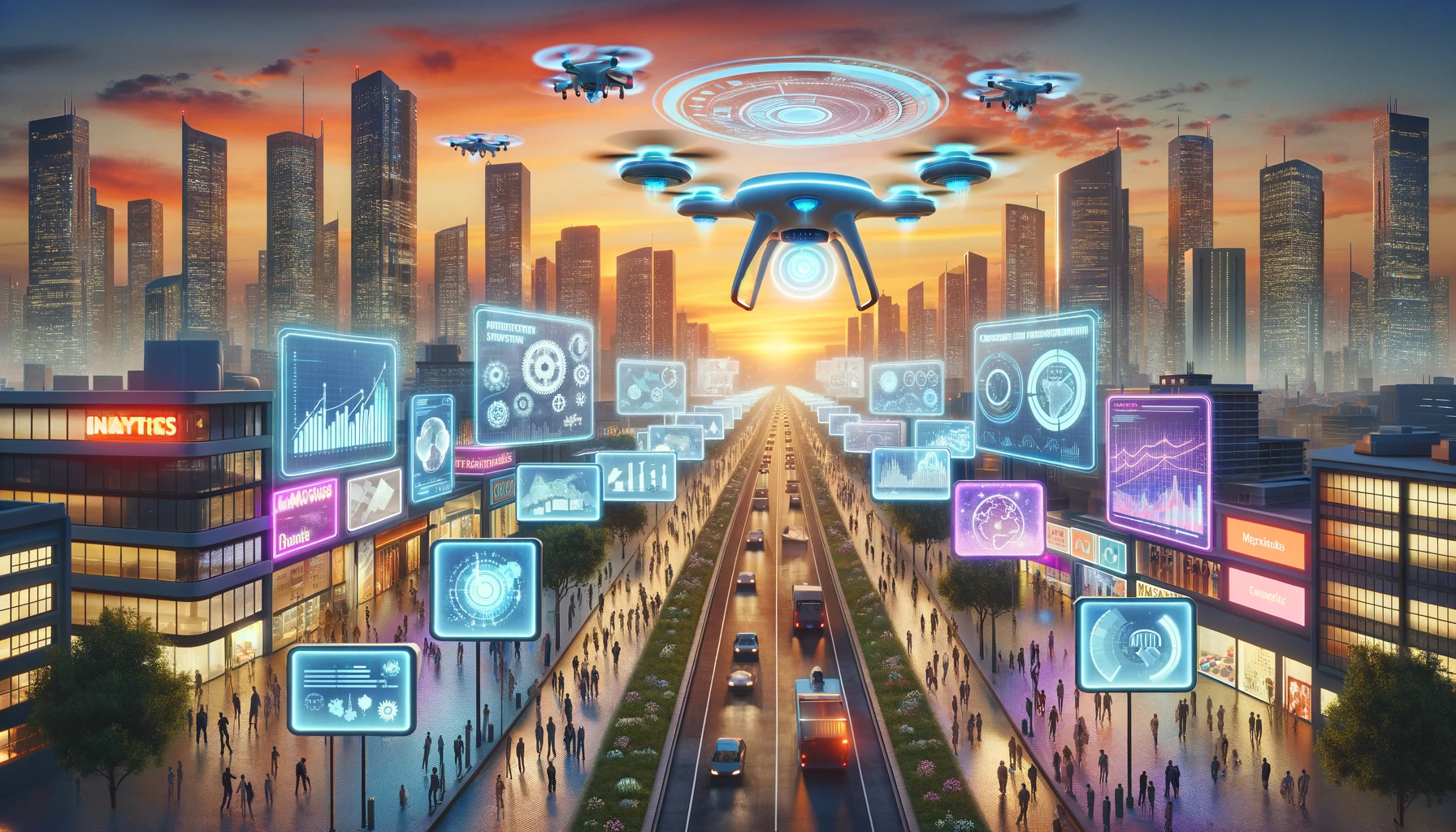
The evolution of market research is increasingly intertwined with the advancements in artificial intelligence (AI) and automation, heralding a new era of data analysis and consumer insights. As businesses strive to stay ahead in a competitive landscape, understanding the transformative power of AI and automation becomes essential. This article explores the cutting-edge trends in AI and automation that are reshaping market research, their applications, challenges, and the future horizon of opportunities they present.
AI and Automation: Revolutionizing Market Research
AI and automation are not just buzzwords but are now central to the methodologies employed in market research. These technologies offer unprecedented capabilities in processing vast amounts of data, identifying patterns, and generating insights with precision and speed that were unimaginable a few years ago. From automated surveys to sophisticated data analytics, AI is transforming how businesses understand their customers and make strategic decisions.
The Landscape of AI-Driven Market Research
The integration of AI in market research encompasses a broad spectrum of applications, each enhancing the way data is collected, analyzed, and utilized:
Automated Survey Methods
Automated surveys and feedback tools are leveraging AI to gather consumer insights more efficiently. AI-driven platforms can adapt questions in real-time based on previous responses, ensuring more relevant data collection and higher engagement rates.
Predictive Analytics
Predictive analytics employ AI algorithms to forecast future trends and consumer behaviors based on historical data. This predictive power enables businesses to anticipate market shifts and consumer needs, offering a significant competitive edge.
Sentiment Analysis
AI-powered sentiment analysis tools analyze text from social media, reviews, and feedback to gauge public opinion and emotional responses towards products, services, or brands. This insight is invaluable for shaping marketing strategies and product development.
Challenges in AI-Enhanced Market Research
Despite the transformative potential, the integration of AI and automation in market research faces several challenges:
Data Privacy and Ethics
The use of AI in market research raises concerns regarding data privacy and ethical use of information. Ensuring compliance with regulations like GDPR and maintaining consumer trust is paramount.
Quality of Data
The accuracy of AI-generated insights depends on the quality of the underlying data. Inaccurate or biased data can lead to misleading conclusions, emphasizing the need for rigorous data validation processes.
Skill Gap
The sophistication of AI and automation technologies requires specialized skills to design, implement, and interpret their outputs. Bridging the skill gap is essential for organizations to fully leverage these technologies in market research.

The Future Horizon: Opportunities in AI and Market Research
As we look towards the future, the role of AI and automation in market research is set to expand, offering new avenues for innovation:
Real-Time Consumer Insights
Advancements in AI will enable more sophisticated real-time analytics, providing businesses with instantaneous feedback on consumer reactions and market dynamics. This real-time capability will revolutionize product launches, marketing campaigns, and customer service strategies.
Enhanced Personalization
AI’s ability to analyze complex consumer data will drive more personalized marketing and product development, tailored to individual preferences and behaviors. This personalization will enhance customer engagement and loyalty.
Ethical AI and Sustainable Practices
The future of AI in market research will also focus on ethical AI practices, ensuring that data collection and analysis respect consumer privacy and contribute to sustainable business practices. Ethical AI will become a key differentiator for companies in a privacy-conscious market.
The Intersection of AI, Automation, and Market Research
The integration of AI and automation into market research represents a profound shift in how businesses gather, analyze, and act on consumer insights. As these technologies evolve, they promise to unlock new levels of efficiency, accuracy, and strategic depth in market research. However, realizing this potential will require addressing the challenges of data privacy, quality, and the skill gap. As we navigate these challenges, the future of market research looks increasingly intelligent, automated, and intricately connected to the evolving landscape of AI technology.











